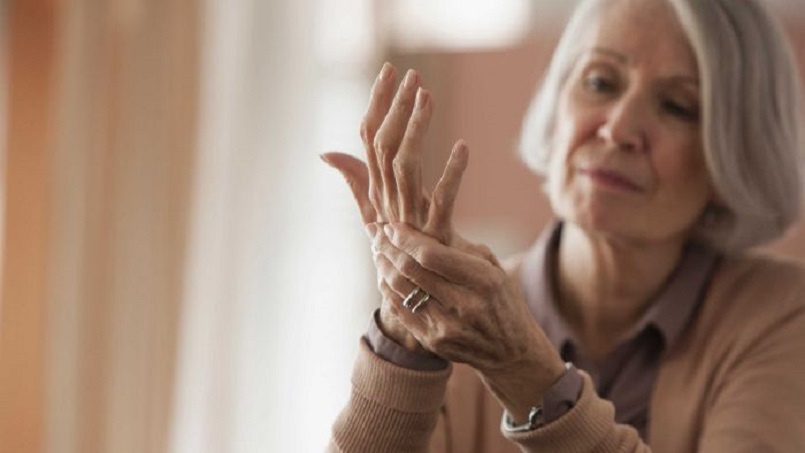
'Question: Can you do anything via diet or supplements to strengthen your nails and hair? As I'm getting older my hair and nails are not as healthy. - Linsey Bamping
Answer: There isn't good evidence that changing your diet or taking supplements helps unless your hair and nail problems are caused by nutritional deficiencies. If the cause is simply getting older, as is more likely, eating particular foods or taking supplements aren't the answer.
The passing years affect your body in many ways. Your hair and nails are no different.
Your nails tend to become ridged or brittle.
Your hair goes grey or gets lighter in colour. This is because of changes to your hair follicles, structures in your skin that grow and make hair. As you age, these follicles make less of the pigment melanin, which is responsible for your hair colour.
As well, hair loss or thinning becomes more of an issue as we get older and this can be very distressing.
"People care a lot about [hair loss]. They mourn it," says spokesperson for the Australasian College of Dermatologists Dr Jill Cargnello.
"That makes them very vulnerable to all these companies who are starting to put up supplements."
By the age of 50, more than half of all men and between 30 and 50 per cent of women will have some signs of hair loss.
Many of these people look for a 'magic bullet', but there is no strong evidence that supplements are the answer.
"If you're peddling nutritional supplements you are not held to the same standard as some pharmaceutical company. So you can make all sorts of claims without having to verify it. By the time people complain about a product they have already made quite a lot of money," Dr Cargnello says.
As for diet, again it's no magic bullet.
"Can you alter your diet to prevent hair thinning or can you alter your diet to make your nails strong? The answer is no."
The exception is if you are deficient in a nutrient important for healthy nails and hair.
"If you are malnourished, if you don't have enough iron. Then you may produce nails and hair that is not of the same quality as if you were adequately nourished," Dr Cargnello says.
So if you have iron deficiency, then taking supplements is likely to address symptoms of the deficiency.
"But if you have sufficient iron in your body then taking extra iron is not going to give you particularly strong nails [or better hair]."
There's no good evidence any of the other ingredients commonly marketed in supplements for hair and nails will help however. These include biotin (vitamin B7) and silica, for example.
So is there anything you can do?
Dr Cagnello says there are some good products — volumisers or thickeners — that can help make your hair look and feel a lot better. But these products don't penetrate the hair shaft or change it in any way, they just put a coating on the outside.
"If you put a conditioner on your hair it feels better, it reflects light better. Because you have that coating on your hair when you're brushing, your brush is moving through the hair more smoothly. So it's not catching on cuticles and not getting more damaged because you have that sort of coat."
So they do make hair softer and silkier but the effect isn't permanent. It lasts only until the next wash.
"They do make the hair softer and silkier because they reduce the friction between individual hair shafts. So they will deliver what they say they will deliver. But only until the next shampoo and certainly not in any permanent fashion," she says.
If your hair is thinning, be aware the effects of colouring, perming and blow drying may detract from the look of your hair even further. Have a good hairdresser, who will trim your ends regularly to keep your hair looking neat. And ask them to focus treatments near the root end of the hair, and only take it to the ends at the very last minute to keep weathering to a minimum.
Finally, if you are worried about your hair loss or thinning, go and speak to your GP.
As for nails, keeping them away from harsh chemicals might help. But drinking more milk or taking gelatine is unlikely to make any difference.
